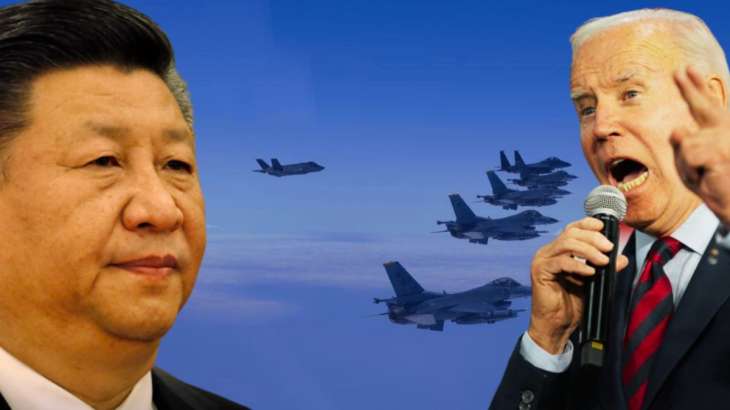
Beijing on Wednesday responded to complaints from the United States about a Chinese fighter jet’s dangerous interception of a US Air Force reconnaissance aircraft in international airspace over the South China Sea and demanded an end to such flights. The incident escalates military, diplomatic and economic tensions between the countries, over US support for self-ruled Taiwan, China’s refusal to engage in talks between its armed forces and a suspected spy balloon by Beijing over the US. By blowing
Foreign Ministry spokesman Mao Ning told reporters at a daily briefing that China would continue to take necessary measures to safeguard its sovereignty. Mao said, “The US must stop these dangerous provocations immediately.” The US Indo-Pacific Command called the actions of the Chinese aircraft “unnecessarily aggressive manoeuvres”, adding to the complaint that China’s military has become increasingly aggressive over the past five years by intercepting US aircraft and ships in the region.
China says it virtually entirely owns the South China Sea, a claim not recognized internationally and directly challenged by countries along its coast, including the Philippines, Vietnam and Malaysia. The US military said in a statement on Tuesday that the pilot of a Chinese J-16 fighter jet flew right into the nose of an RC-135 performing routine operations in international airspace last Friday.
Military-to-military contacts between the sides have completely evaporated in recent years amid a historic decline in government relations, even as trade and personal exchanges remain strong. Further dimming prospects for a de-escalation, China said its defense chief would not meet US Defense Secretary Lloyd Austin when the two men attend a security conference in Singapore at the weekend.
Austin is scheduled to address the Shangri-La Dialogue on Saturday, while Chinese Defense Minister General Li Shangfu will address the gathering on Sunday.
US Secretary of State Antony Blinken said on Wednesday that the plane incident showed why it is important for the US and China to maintain senior-level dialogue to prevent miscommunication and miscalculations that could lead to conflict. He said it was “regrettable” that Beijing turned down Austin’s request for a meeting with the Chinese defense minister.
“I think it just underscores why it’s so important that we have regular, open lines of communication, including between our defense ministers,” Blinken said on the sidelines of the EU-US Trade and Technology Meeting. Finally said at a press conference. Lulia, Sweden. “As we have said repeatedly, while we have real competition with China, we also want to ensure that it does not fall into conflict and the most important starting point for that is regular lines of communication,” he said.
China has said that the US is fully responsible for the communication breakdown but has not given a reason publicly.
With its People’s Liberation Army as the world’s largest standing military, which answers directly to the ruling Communist Party, China frequently challenges the US and its allies to military aircraft in the South and East China Seas and the Taiwan Strait connecting the two. gives. Such behavior led to an air collision in 2001 between a Chinese fighter and a US Navy surveillance aircraft in which the Chinese aircraft was lost and the pilot was killed.
In Tuesday’s statement, the Indo-Pacific Command said the US “will continue to fly, sail and operate safely and responsibly – wherever international law allows,” and expected all other countries to do the same. Is.
(with inputs from AP)